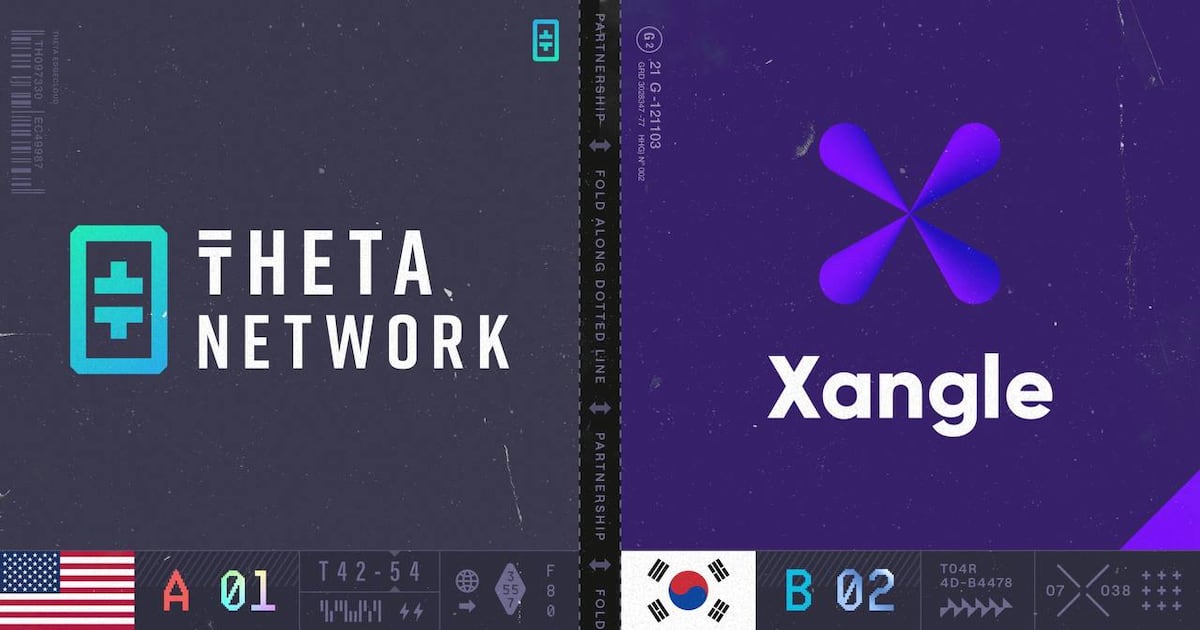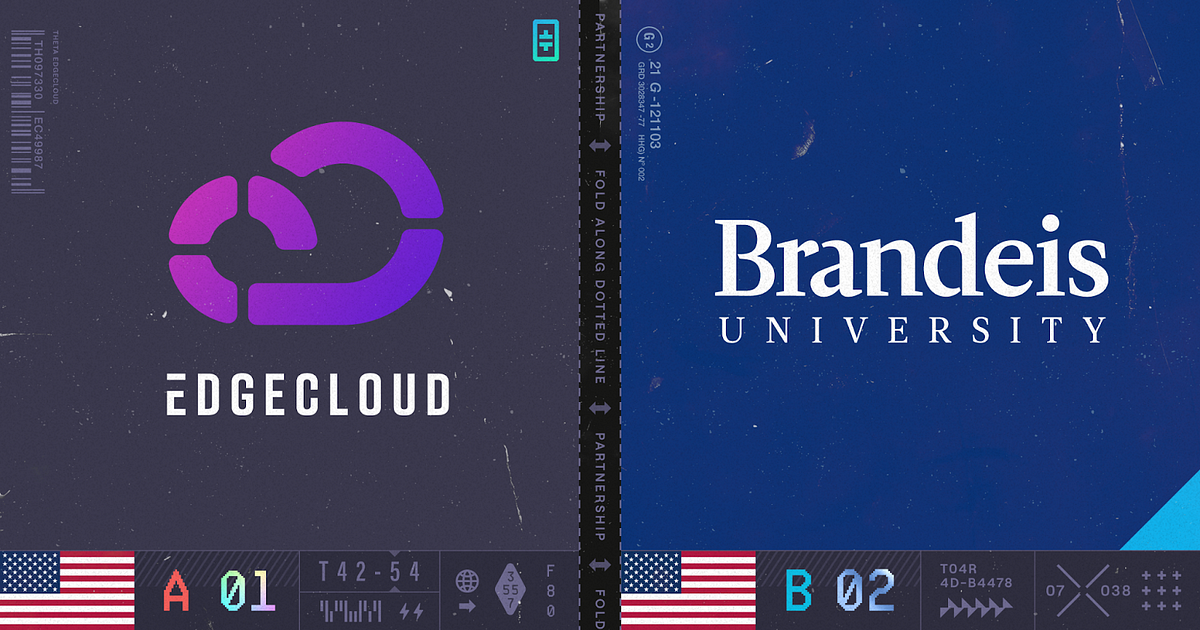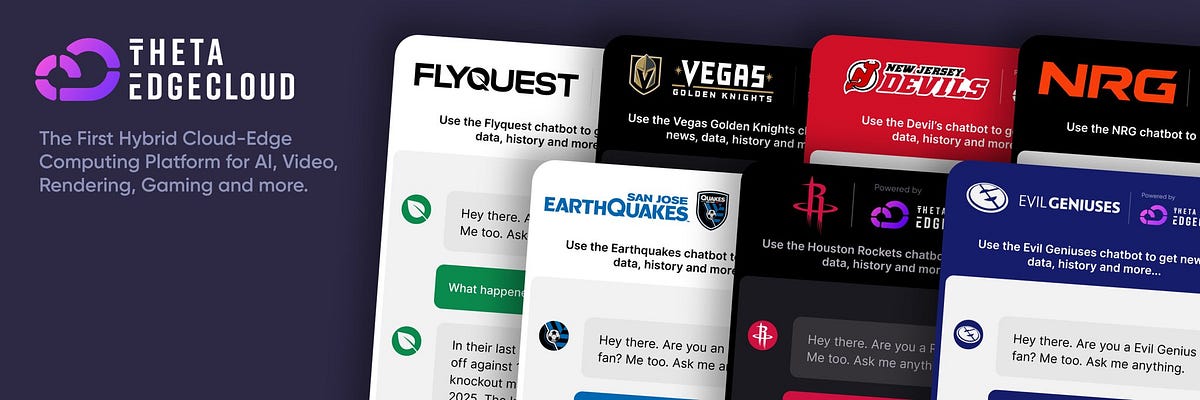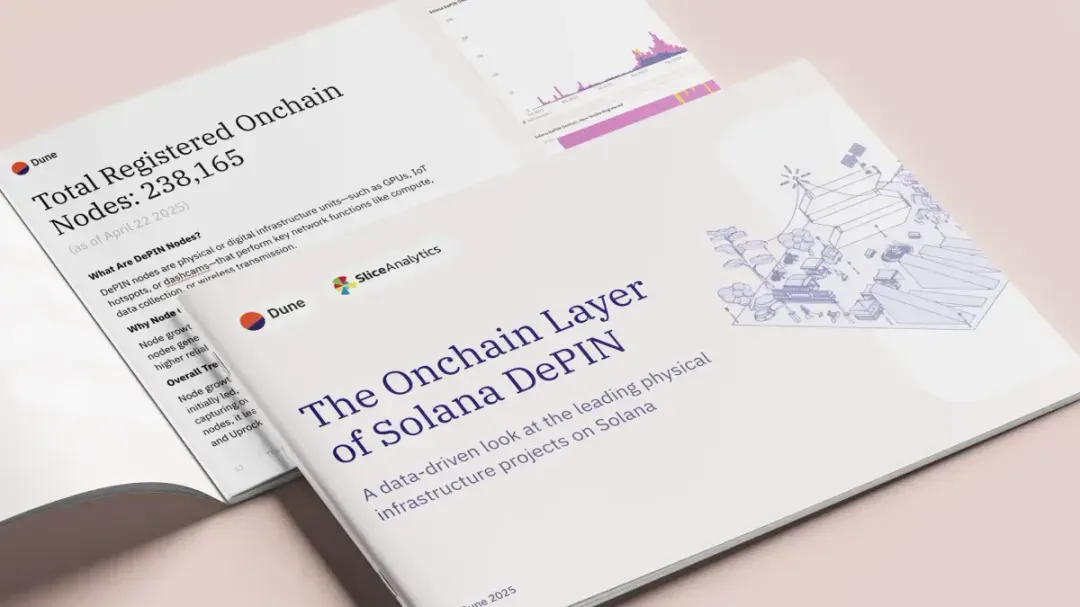Latest DePIN News

3 days ago
Comparing Web3 Cloud Solutions: Phala Cloud, Akash Network, and Fleek
In the rapidly evolving landscape of Web3 cloud solutions, selecting the right platform is crucial for the success of your project. This article compares three notable options: Phala Cloud, Akash Network, and Fleek, each catering to different needs. Phala Cloud focuses on privacy-preserving computation with TEE-backed GPU enclaves, making it ideal for secure AI applications. Akash Network offers a decentralized compute marketplace, perfect for machine learning training and scalable backends. Meanwhile, Fleek specializes in edge and static hosting, providing a user-friendly experience for deploying frontend applications. Understanding these platforms' strengths can guide developers in making informed decisions based on their unique requirements.
The architecture and core features of these platforms highlight their distinct technical foundations. Phala Cloud utilizes peer-to-peer enclaves for execution, ensuring a high level of confidentiality with on-chain attestation. Akash Network operates through a container marketplace orchestrated by Kubernetes, allowing for flexible resource allocation. Fleek, on the other hand, focuses on edge hosting and static site deployment, offering minimal backend trust features. Each platform has its own key management approach, with Phala emphasizing self-custodied keys, while Akash relies on provider-managed key stores. These differences are essential for developers to consider when aligning their project needs with the right cloud solution.
Finally, the cost models and tooling available on each platform further differentiate them. Phala Cloud operates on a prepaid credit system, providing predictable pricing for users. Akash Network's spot bidding model introduces volatility but can lead to significant savings for compute-intensive tasks. Fleek offers a free tier, making it accessible for small-scale projects. Developers should also consider the tooling and integrations each platform provides, as these can impact the ease of deployment and ongoing management. By leveraging the strengths of Phala, Akash, and Fleek, developers can create resilient and efficient Web3 applications tailored to their specific needs.

3 days ago
Filecoin Achieves Major Milestone in Decentralized Data Storage
Filecoin, the decentralized data storage network built on blockchain technology, has reached a significant milestone by securing 2.1 exbibytes (EiB) of data storage. This achievement not only places Filecoin at the forefront of the decentralized storage industry but also highlights its capacity to scale in response to the increasing demand for decentralized data solutions. With an additional 7.6 EiB of raw storage capacity available, Filecoin demonstrates resilience amidst market fluctuations and broader economic uncertainties in the tech sector, solidifying its influence in the industry.
A pivotal factor in Filecoin's rapid growth is the introduction of the Filecoin Virtual Machine (FVM) in March 2023, which has enabled the deployment of over 3,700 independent smart contracts. This development enhances the network's capabilities, supporting decentralized applications (dApps) and contributing to a total value locked (TVL) of 63 million FIL (approximately $273 million). The FVM is facilitating the expansion of decentralized storage beyond traditional Web2 applications, aiming to develop a fully decentralized internet that prioritizes data privacy and user sovereignty, marking a significant step in Filecoin's journey within the Web3 space.
Moreover, Filecoin is transitioning into a decentralized physical infrastructure network (DePIN), aligning with trends in decentralized computing and artificial intelligence (AI). This shift opens new avenues for enterprise adoption, allowing organizations to utilize decentralized data storage for various applications. The launch of new data services, including persistent storage and data privacy solutions, exemplifies this transition. With a remarkable uptime of 99.99% over the past 90 days, Filecoin ensures reliability for its users while fostering community engagement through regular updates and discussions. As the decentralized storage market matures, Filecoin's advancements reflect its leadership and commitment to shaping the future of decentralized infrastructure.

4 days ago
Xangle Joins Theta Network as Enterprise Validator, Enhancing Blockchain Infrastructure
On the 9th, blockchain infrastructure corporation Xangle announced its entry into the global blockchain mainnet Theta Network as an enterprise validator. Theta Network is renowned for providing decentralized cloud infrastructure tailored for sectors such as artificial intelligence (AI), media, sports, and entertainment. It boasts a robust framework supported by over 30,000 distributed edge nodes worldwide, ensuring efficient operation and governance. The network has garnered strategic investments from notable entities including Samsung Next, Sony Innovation Fund, Bertelsmann Digital Media Investments, and Creative Artists Agency (CAA), with global giants like Google, Samsung, and Binance also participating as enterprise validators.
As part of its commitment to the Theta ecosystem, Xangle will stake a total of 200,000 Theta (THETA) tokens, significantly enhancing network security and governance as a validator node. The company aims to actively contribute to the expansion of the decentralized physical infrastructure network (DePIN) and the AI ecosystem that Theta promotes. Founded in 2018, Xangle has established itself as a leading web3 infrastructure service provider and research platform in Korea, offering community hubs, blockchain explorers, and comprehensive web3 industry analysis reports. It has also served as a validator for various global projects, including Aptos, Babylon, 0G, and Initia.
Lee Hyun-woo, co-CEO of Xangle, expressed enthusiasm about the partnership, stating, "We are very pleased to be listed as an enterprise validator alongside Google, Samsung, and CAA through our strategic partnership with Theta." He emphasized that staking in Theta's validator network aligns perfectly with Xangle's mission to enhance trust, decentralization, and transparency in layer 1 blockchains. Mitch Liu, co-founder and CEO of Theta Network, echoed this sentiment, highlighting Xangle's strengths in blockchain analysis and ecosystem development, and anticipating significant synergies in promoting Theta (THETA) and Theta Fuel (TFUEL), along with enhancing the overall security and scalability of the Theta blockchain.

5 days ago
Arctic Pablo Coin: A New Era for Meme Coins with Structured Gains
Arctic Pablo Coin (APC) is making waves in the crypto market by introducing a unique approach to meme coins that goes beyond mere hype. With a presale phase that offers a staggering 66% annual percentage yield (APY) for staking, APC is designed to keep its community engaged through dynamic participation. The coin encourages growth through referral rewards and ongoing competitions, allowing holders to earn additional prizes in either APC or USD. Furthermore, its deflationary model, which burns unsold tokens weekly, enhances the value of the remaining supply, making Arctic Pablo Coin not just a humorous investment but a strategically designed one.
Currently priced at $0.000125 during its presale at Iceberg Isle, Arctic Pablo Coin is on a journey through various pricing checkpoints, with a launch price set at $0.008. This innovative rollout has already raised over $2.45 million, showcasing significant traction and trust from the community. As the presale progresses, the price will increase, creating a narrowing window for early participants to capitalize on a potential return on investment (ROI) of up to 6300%. This structured approach positions Arctic Pablo Coin as one of the best cryptocurrencies to buy today, appealing to both meme enthusiasts and serious investors alike.
In addition to Arctic Pablo Coin, other notable projects like Filecoin and Cosmos are also making strides in the blockchain space. Filecoin is evolving into a comprehensive Web3 infrastructure hub by integrating Decentralized Physical Infrastructure Networks (DePIN), while Cosmos has upgraded its Cosmos-SDK to enhance interchain security and governance. Together, these projects are contributing to the growth and utility of decentralized technologies. However, Arctic Pablo Coin's creative presale strategy, combined with its potential for high returns, sets it apart as a compelling investment opportunity in the ever-evolving crypto landscape.

5 days ago
Roam Launches Free eSIM Data Program for Businesses
Roam has launched the Free eSIM Data Program tailored for businesses, aiming to provide reliable, high-speed, and cost-effective internet solutions globally. As a leader in the decentralized physical infrastructure network (DePIN) sector, Roam boasts over 3.4 million self-deployed nodes and more than 4.5 million OpenRoaming™ hotspots worldwide. This robust infrastructure enables Roam to deliver seamless connectivity for both business and individual users, making it a trusted option in the market.
The Roam eSIM offers several benefits, particularly for modern professionals who frequently travel or work in environments requiring constant internet access. With the eSIM, users can avoid high roaming fees by gaining automatic network access in over 180 countries, connecting to local networks instantly upon arrival without any manual setup. Additionally, remote and hybrid workers can maintain connectivity from any location, ensuring access to essential platforms like Google, Gmail, and Web3 exchanges. The activation process is straightforward, as the Roam eSIM is compatible with all eSIM-enabled devices, allowing users to activate it online without needing a physical SIM card.
Eligible users with verified corporate emails can claim a one-time eSIM benefit that includes no expiration on unused data, automatic accumulation of new monthly data, and exclusivity to verified business users. Users can easily activate the eSIM online, ensuring their devices are compatible and submitting necessary personal details. However, users should be aware that short service interruptions may occur due to network maintenance or other constraints. Roam reserves the right to modify or terminate the program at any time, and by claiming the benefit, users agree to the campaign policy terms.

8 days ago
Theta Network Partners with Brandeis University to Enhance AI Research
Theta Network has announced a significant partnership with the Liu Lab at Brandeis University, led by Professor Hongfu Liu, to utilize Theta EdgeCloud for enhancing machine learning (ML) and artificial intelligence (AI) research. This collaboration marks a pivotal moment for Theta as it solidifies its position as a leader in decentralized GPU infrastructure for academic research. The Liu Lab joins a prestigious list of institutions, including Stanford University and Seoul National University, that are leveraging EdgeCloud’s hybrid GPU capabilities to boost productivity in AI research. By integrating these decentralized resources, the lab can access scalable and high-performance computing power, which is crucial for advancing their research initiatives in data-centric learning and clustering analysis.
Professor Liu emphasized the benefits of this integration, stating that the flexibility and cost-effectiveness of Theta EdgeCloud allow their team to focus on innovative research projects without the burden of managing extensive computational resources. The lab's research primarily revolves around data-centric learning, which prioritizes the quality and diversity of training data over mere algorithm refinement. This approach is essential for developing reliable and fair machine learning models, as it ensures that the datasets used are well-annotated and representative of real-world scenarios. The Liu Lab's ongoing studies in this domain include various applications such as noisy label correction and active learning, showcasing the breadth of their research capabilities.
Theta EdgeCloud’s decentralized infrastructure not only empowers the Liu Lab but also supports a wider academic community by providing on-demand, high-performance computing resources. This initiative allows researchers to dynamically allocate resources, optimizing both performance and cost for large-scale projects. As Theta Network continues to partner with leading institutions, it aims to facilitate groundbreaking research in AI and machine learning, ensuring that researchers can focus on their work without the constraints of traditional computing limitations. This collaboration represents a significant step forward in making advanced AI research more accessible and efficient for academic institutions worldwide.

9 days ago
Theta Ecosystem Expands with AI Innovations and Sports Collaborations
The Theta ecosystem is witnessing significant growth and adoption across various sectors, including sports, media, academia, and AI startups. In the latest April roundup, Theta has made headlines with its collaboration with the NBA's Houston Rockets, launching an innovative AI-powered mascot named "ClutchBot." This initiative marks a pivotal moment for Theta as it expands its influence in professional sports, showcasing the potential of AI technology in enhancing fan engagement and experience.
In addition to its partnership with the Houston Rockets, Theta is also making strides in Major League Soccer (MLS) by assisting the San Jose Earthquakes in launching the league's first interactive AI agent chatbot. This development highlights Theta's commitment to integrating AI solutions into sports, further establishing Theta EdgeCloud as a leading platform for AI applications in both professional sports and esports. The platform continues to attract a growing roster of team partners, solidifying its position in the market.
Moreover, academic institutions are increasingly recognizing the value of Theta's technology. Stanford University's AI Lab, led by Professor Vitercik, has begun utilizing Theta EdgeCloud for AI research, demonstrating the platform's versatility beyond sports. Theta has also introduced the first decentralized On-demand AI Model API Service, which adds more AI models to EdgeCloud. This expansion is complemented by top esports teams like NRG and EvilGeniuses launching their own Agentic AI chatbots powered by EdgeCloud. As the Theta World Tour continues at events like Paris Blockchain Week and Token2049 in Dubai, the platform is gaining more press coverage and visibility in the blockchain space.

11 days ago
Exploring the Potential of DEPIN in Web3
In the rapidly evolving landscape of Web3, DEPIN, or Decentralized Physical Infrastructure Networks, is gaining significant attention. This innovative concept leverages the principles of decentralization to transform fragmented resources into valuable services. Amira Valliani, head of DEPIN at the Solana Foundation, emphasizes that DEPIN enables individuals to contribute their idle resources, such as WiFi bandwidth or data collection capabilities, to create a collaborative infrastructure. Projects like HiveMapper and Helium exemplify this model, allowing users to earn tokens by sharing their resources, thereby democratizing access to essential services that were previously dominated by large corporations.
The relationship between DEPIN and artificial intelligence (AI) is particularly noteworthy. As AI technology continues to advance, the demand for real-world data is skyrocketing. DEPIN serves as a vital data collection network that can provide the necessary information for AI applications, such as self-driving cars and delivery robots. By utilizing decentralized networks, DEPIN can gather data more efficiently and cost-effectively than traditional methods. This synergy between DEPIN and AI not only enhances the capabilities of AI systems but also opens new avenues for decentralized AI projects, challenging the dominance of major tech companies.
Looking ahead, Valliani predicts that DEPIN could evolve into a trillion-dollar industry, driven by the maturation of development tools, the increasing demand for real-world data due to AI advancements, and the influx of practical entrepreneurs into the Web3 space. As DEPIN lowers the barriers to entry for individuals to participate in infrastructure development, it creates new job opportunities and empowers ordinary people to engage in the digital economy. For those who missed the early days of Bitcoin and Ethereum, DEPIN presents a promising opportunity to get involved in the next wave of technological innovation.

12 days ago
GEODNET Testifies Before Congress on Decentralized Infrastructure
On April 10, 2025, Mike Horton, the project creator of GEODNET, delivered a significant testimony before the U.S. Congress, representing both GEODNET and the broader Decentralized Physical Infrastructure Networks (DePIN) ecosystem. His presentation highlighted the transformative potential of blockchain-powered DePINs, which are already making strides in providing scalable and cost-effective infrastructure solutions across critical sectors such as internet connectivity, precision navigation, and renewable energy. This testimony marks a pivotal moment in the recognition of decentralized technologies by U.S. policymakers.
The growing acknowledgment from government officials underscores the increasing importance of decentralized technologies in addressing infrastructure challenges. Horton’s testimony not only showcased the achievements of GEODNET but also emphasized the broader implications for the DePIN ecosystem. The ability of these networks to deliver essential services efficiently and sustainably is a testament to the innovative capabilities of blockchain technology, which is gaining traction in various sectors.
This event serves as a proud milestone for those involved in the development of decentralized infrastructure. It acts as a powerful motivator for stakeholders committed to building the future of infrastructure through decentralized solutions. As the momentum behind these technologies continues to build, it is clear that the integration of blockchain into physical infrastructure is set to play a crucial role in shaping a more connected and sustainable future.

12 days ago
Solana Emerges as Leader in DePIN Projects: A Comprehensive Analysis
The latest research report from Dune and Slice Analytics presents a comprehensive analysis of the Decentralized Physical Infrastructure Network (DePIN) projects on Solana, highlighting their development status, market performance, and on-chain data. DePIN is emerging as a transformative model that utilizes cryptocurrency incentives to operate real-world infrastructure, such as shared GPUs and telecommunications networks. Solana has positioned itself as a leading platform for these projects due to its high throughput and low transaction costs, making it an ideal environment for the growth of DePIN applications. As of April 2025, the total market value of DePIN projects on Solana reached $3.25 billion, surpassing other blockchain platforms significantly.
The report categorizes DePIN projects into five main segments: Compute, Wireless, Sensor, Server, and AI, with the Compute category dominating the market at 71.2%. Projects like Render and Helium are leading the way, providing decentralized processing power and wireless connectivity, respectively. The growth of registered on-chain nodes for DePIN projects on Solana has also been notable, reaching 238,165 by April 2025. Helium, in particular, has seen rapid growth in its mobile user base and node deployment, while Render and Hivemapper continue to expand their contributions to the ecosystem.
As the cryptocurrency industry matures, on-chain revenue has become a crucial metric for evaluating the sustainability of these projects. By April 2025, the total on-chain revenue for DePIN projects on Solana reached $5.98 million, indicating a strong product-market fit. Helium emerged as the top earner, while Render and Hivemapper also demonstrated significant revenue generation. The report underscores Solana's dominance in the DePIN space and emphasizes the importance of transparency in tracking on-chain activities, which remains a challenge due to the reliance on off-chain hardware and third-party integrations.
Signup for latest DePIN news and updates
